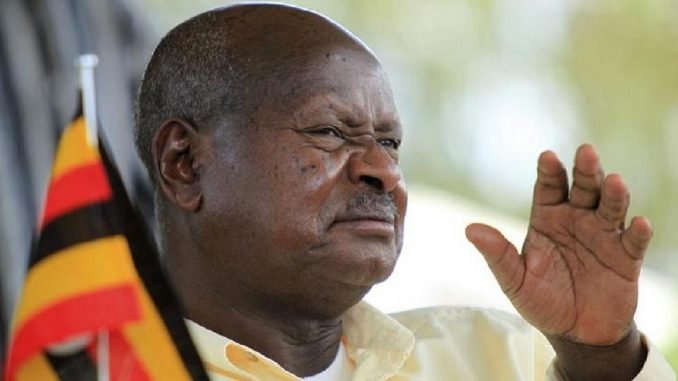
Kampala, Uganda | URN | President Yoweri Museveni has defended the government’s decision to terminate the operations of the Office of the United Nations High Commissioner for Human Rights (OHCHR) in Uganda.
He was responding to a query raised by a journalist at a press conference at the Uganda-South Africa investment forum in Pretoria who questioned Uganda’s decision to close OHCHR operations in Uganda. In his response, Museveni said that the organization was deemed superfluous as there was already another entity performing the same duties.
He pointed out that Uganda already has a constitutional body, the Uganda Human Rights Commission, responsible for protecting human rights and he believed that the existence of OHCHR had created confusion in Uganda, as people were not sure where to report their grievances.
In February 2023, the Ministry of Foreign Affairs announced that the government would not renew the mandate of the OCHCR, which was set to expire at the end of this month. In a letter to the OCHCR head office, the ministry stated that Uganda had developed the capacity to monitor, promote, and protect human rights without external support.
President Museveni reiterated this point, suggesting that there may be other countries in more need of the OCHCR’s services than Uganda.
The decision to terminate the mandate of human rights offices has faced strong opposition from human rights activists and civil society, who view it as a reflection of the government’s response to the increasing scrutiny over abuses such as torture, forced disappearances, abductions, detentions without trial, and re-arrests of persons legally released by the courts.
Despite this, discussions are ongoing between the United Nations Office of the High Commissioner for Human Rights and the government to try and persuade the latter to rescind its decision to close its activities in Uganda, as noted by Grace Pelly, the OCHCR deputy resident representative in Uganda.
Read Also: U.S questions termination of UN Human Rights Office in Uganda
The Office of the United Nations High Commissioner for Human Rights is responsible for promoting and safeguarding the full enjoyment of all human rights established in the Charter of the United Nations and international human rights laws and treaties. This includes preventing human rights violations, promoting respect for all human rights, and promoting international cooperation to protect human rights while streamlining the United Nations system in this regard.
The office was established in Kampala in 2006, initially to focus on the human rights situation in conflict-affected areas in Northern and North-Eastern Uganda, but was later expanded in 2009 to cover the entire country and all human rights issues.
In 2020, the mandate of the OHCHR was expanded to establish a Regional Human Rights Training Centre in Uganda. The center is designed to provide training on the international human rights system to interested states in the region, as well as national human rights institutions and civil society organizations.



